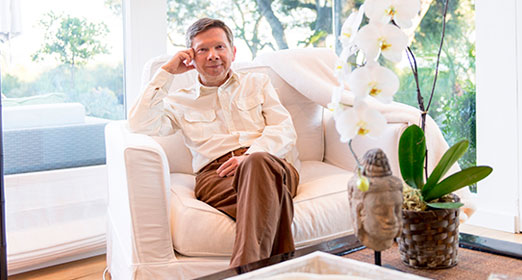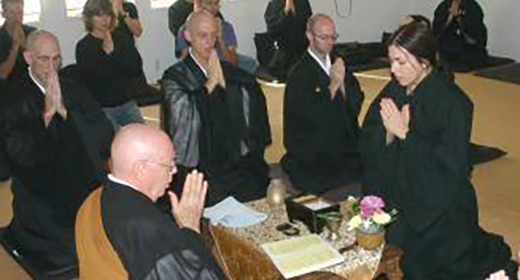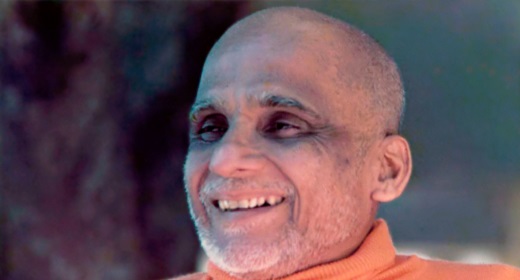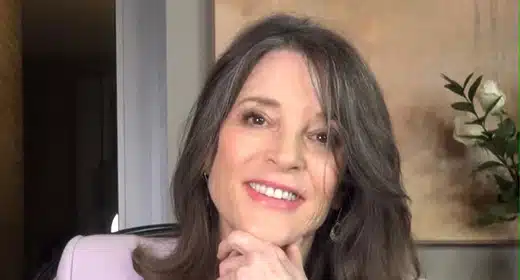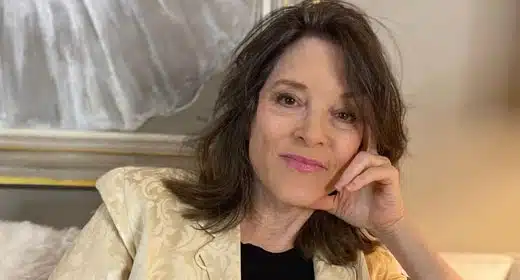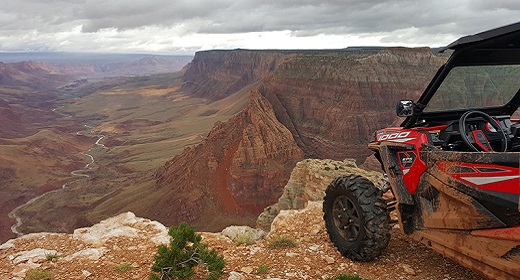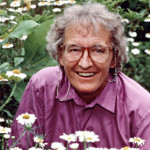I’m interested in providing as much interesting and valuable content on this blog as possible, it seems a natural to share some of these profiles, starting with this one of Marianne Williamson.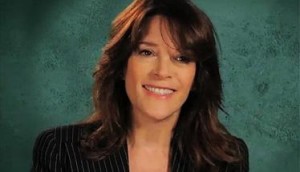 While it was written over 10 years ago (1997) at the time her new book, Healing America, was just coming out, I think you’ll find much truth in what Marianne had to share.
While it was written over 10 years ago (1997) at the time her new book, Healing America, was just coming out, I think you’ll find much truth in what Marianne had to share.
Marianne Williamson, author of such bestsellers as A Woman’s Worth, A Return to Love, and Illuminata, describes herself as a “child of the sixties” — a part of a generation that thought traditional political change was the be-all and end-all of social transformation.
“In the sixties, we did love and politics together,” says Williamson. “We can honestly say we remember a time when we tried to use the light (of love) to heal American society.” But then something happened to change all that. The heroes of that generation were killed; first John Kennedy, then Robert Kennedy, and later Martin Luther King, Jr.
Williamson remembers, like most people do, where she was when she first heard that President Kennedy had been assassinated — in the sixth grade. “I was the one who ran around to different classes telling people,” remembers Williamson. “So, what’s new, right?” A couple of years later, now fifteen, Williamson once again shared in the shock of a nation by the assassination of Martin Luther King, Jr. In the introduction to her latest book, The Healing of America, Williamson recalls that day.
“I was watching television in my family’s den while waiting for my father to come home from work, when a news bulletin reported that King had been killed.
“Shortly afterward, my father walked in the back door. I ran up to him crying. ‘Daddy, Daddy, Martin Luther King, Jr., was shot and killed!’
“I saw a look on my father’s face that I had never seen before. His eyes seemed to focus on something impossibly far away, and with an intensely pained expression on his face, he spat out the words, ‘Those bastards.’
“Confused, I thought, ‘What is he saying? How does he know? What does he mean, ‘those bastards?’ In that moment I lost my innocence.”
And moments like that occurred for millions of other ‘children of the sixties,’ and before we knew it we were faced with a separation of love and politics that has lasted up to the present day.
Williamson’s path took her towards a deep exploration of spirituality and consciousness, including extensively studying the popular Course in Miracles . She began lecturing in 1983 and in 1993 her first book, A Woman’s Worth, a collection of seven inspirational essays aimed at resurrecting the sacred feminine in today’s women, was published, and became a best seller. The next year Illuminata: Thoughts, Prayers, Rites of Passage hit the book stores, followed two years later with, A Return to
Love: Reflections on the Principles of a Course in Miracles .
As far as Williamson is concerned, her political interests are not a departure from her spiritual pursuits, but rather an extension. Quoting Martin Luther King, she says:
“The gospel at its best deals with the whole man, not only his soul but his body, not only his spiritual well-being, but his material well-being. Any religion that professes to be concerned about the souls of men and is not concerned with the slums that damn them, the economic conditions that strangle them and the social conditions that cripple them is a spiritually moribund religion awaiting burial.”
In March of this year (1997), Williamson became the spiritual leader of the Church of Today in Warren, Michigan, just outside of Detroit. After living in the quiet community of Santa Barbara, California, for the past four years where she devoted most of her time to writing and raising her daughter, Williamson felt a yearning to “go back to a more nitty-gritty environment, and to have dirt under my ‘spiritual fingernails’ again.”
Williamson sees the intersection of spiritual and political principles as a cutting edge subject for those interested in higher consciousness. Noting that since the sixties, political forces and philosophical forces have been divorced (“each smugly dismissing the other as irrelevant”), she sees a remarriage in the making.
In the following interview, I asked Marianne Williamson to explore these ideas more deeply with us. Is a marriage between politics and spirituality possible, and if so, what will the resulting relationship bring forth for the world?
SWIFT: How does a political movement based on spirituality differ from a movement based on religion, such as the religious right?
WILLIAMSON: The religionization of politics is dangerous, but the spiritualization of our political consciousness is imperative. The founding principles of this country contain deep spiritual substance: they emphasize the equality of souls, a natural spirit of goodness within each person, our natural right to freedom and the notion of an underlying unity within our diversity. Those are principles, not dogma. Therefore they expand rather than constrict our political sensibility.
A spiritual rather than religious politics also emphasizes a new, or at least revitalized democratic process. In order to practice democracy at its highest, we need deep and quiet and compassionate minds. Our founders believed that we would refer to our deepest wisdom in order to govern this country; how can shallow minds do that? We need a sacred ground of national consciousness from whence real and genuine solutions can flow.
It’s ultimately what kind of people we are, and what kind of stand we make within the society, that will determine the direction of the country. If politics continues to be a container for our lowest sensibilities, it can never express our highest yearnings.
SWIFT: Part of what I’m hearing is that one of the differences is in a spiritually based politics…the idea of the ends justifying the means no longer works?
WILLIAMSON: Very definitely. Both Gandhi and Dr. King stressed the ‘coherence of ends and means.’ Ultimately, how you do something determines the gist of what you do. If you look at American politics today, (1997) it’s clearly dominated by the thought that the end justifies the means. People are forever compromising their own principles in the belief that, unless they ‘get elected,’ they won’t have any power to do good anyway. From a spiritual viewpoint, however, good lies in the mere uttering of a truthful word. Whether that truth gets a person elected or not is not the higher issue.
SWIFT: In your writing and speaking, you call for a change of heart, or maybe a return to heart, in America. Yet, most people probably don’t think they need a change of heart. How do you convince people they need to change?
WILLIAMSON: First of all, I think that most people very definitely think America needs a change of heart. We’re just not clear on how to go about making it happen.
In his first Inaugural address, President Abraham Lincoln said, ‘By the frame of government under which we live, this same people have wisely given their public servants but little power for mischief; and have, with equal wisdom, provided for the return of that little to their own hands at very short intervals. While the people retain their virtue and vigilance, no administration, by any extreme of wickedness or folly, can very seriously injure the government in the short space of four years.’
I’m fascinated by how Lincoln distinguishes between our virtue and our vigilance. I think the American people are virtuous; I think we are on the whole a decent and fairly compassionate lot of people. What we lack today, however, is vigilance: we are not careful enough to watch, and take responsibility for, things which are done in our name. If a critical mass of us saw through the fog of our media conditioning, and recognized the level of unnecessary suffering among American children, for instance, we wouldn’t stand for it.
We need a new political gestalt in this country, an alternative or complimentary politics parallel in many ways to alternative, or complimentary, medicine. We tend to look at politicians the way we used to look at doctors: we now know that the thoughts and spiritual consciousness of the patient are as important as the doctor’s medicine. Similarly, in a democracy, the thoughts and spiritual consciousness of the citizen are as important as the politician’s legislative initiatives.
SWIFT: Many people believe the two parties in this country don’t offer much of a difference in choice. Coupled with the overall apathy of the American public, making such a transformation as you’re advocating seem like a huge task. How do you see that much movement taking place?
WILLIAMSON: It would be a miracle, wouldn’t it? But we’ve had them before in this country. The American revolution was a miracle. Interrupting the flow of history is never easy, but Americans are good at it. If the alternative to trying is to merely acquiesce to the direction we’re heading in now, in which economic principles are given so much more primacy than humanitarian ones, then what a sad legacy we will leave to our children. We will have profoundly failed to live up to the noble challenge of American democracy. This country was founded on a repudiation of the ancient regime, in which wealth and privilege were retained in the hands of a relative few. Power in America would stem not from a king or aristocracy, but from the spirit of goodness in every person. That was, and still is, a radical idea.
But we’ve been so co-opted by an aristocratic mindset that instead of repudiating a system in which power is consolidated in the hands of a relative few, we tend to go around trying our best to get into their club so that we can wield it too!
We must guard against our own excesses. The only way capitalism is an ethical system is if we are vigilant in our commitment to providing universal access to its myriad opportunities, to all America’s children. Without a quality education, a child has no access to true power in America. There is no power in the absence of an enlivened mind.
SWIFT: There’s no question that love and forgiveness is good for the heart, good for the people. But do they produce results in the world, and if so, what do they translate into?
WILLIAMSON: Let’s deal with love itself. Does anyone doubt the difference in behavior between a child who experiences love, versus one who does not? Our society would do well to demand in-depth, well-publicized psychological histories of violent criminals. We all know that common sense would be borne out: in the vast majority of cases, those who abuse had previously been abused.
Our prisons are universities of crime. Small time criminals go there and learn how to become big-time criminals. But there’s another choice we could make as a society. When drug and alcohol and other rehabilitation programs are introduced into our prisons, the rate of recidivism decreases drastically. That’s because forgiveness is more effective than a consciousness of guilt. It has God’s mercy and thus God’s power behind it.
Millions of America’s children are being neglected in America today, not only by their parents but by the society at large. ‘They’re not my kids, therefore they’re not my problem’ is an attitude we can’t afford to indulge. If we do, then believe me, those kids will be our problem. They already are, mind you, and our basic answer to the problem is to build more prisons more quickly. Building prisons is the single largest urban industry in America today.
SWIFT: It’s quite popular for our politicians to use being tough on crime as a way to get
elected. With punitive justice seeming to have such a strong foothold in this country, how do you see us going about making the change you’re speaking about?
WILLIAMSON: I think there are many millions of Americans more committed to the notion of a redemptive God than a judgmental God. Not an enabling God, mind you, or a God who coddles the lazy. But a redemptive God, who forgives and rebuilds shattered lives. If we can begin to articulate a social vision which reflects that attitude, it will win the day because it is evolutionarily in step with the spiritual journey of humanity.
SWIFT: How do you see the merging of spirituality with politics affecting the national economy, and our debt?
WILLIAMSON: Federally, we now spend 259 billion dollars a year on the Pentagon. Education, health care, job creation and community development all together receive 59 billion dollars less! Again nationally, we spend 22 per cent of our budget on the military and 5 per cent on education. Personally, I don’t think there’s a foreign power in the world that poses a threat to our future security more dangerous than that posed by all the rage building up in disadvantaged American citizens. A fifth of our children live in poverty; a half of all African-American children live in poverty. We’re not talking about children who wonder whether they’ll get the new Disney video for their birthday; we’re talking about children who wonder whether they’ll get breakfast tomorrow, or even lunch.
We’ll spend l.2 billion dollars for a B-2 bomber that the Pentagon doesn’t even want, when that money would pay the annual salaries of 56 thousand elementary school teachers and 125 thousand child care workers. We need a military budget, of course, because we should have a strong military. But we don’t need an overblown military budget that reflects the economic influence of the defense establishment more than the real needs of the country. We should be developing the tools of waging peace, as much as the tools of waging war.
SWIFT: And what effects do you see the merging of spirituality and politics having on our foreign policy?
WILLIAMSON: Again, I don’t think the average American realizes the damage that’s been done by American interests throughout the world. That doesn’t mean we haven’t done any good at times, because of course we have, but we have heavily violated native cultures, the environment, and God knows how many human beings. We are six per cent of the world’s population and we own fifty per cent of its wealth. We give point six of one per cent of our money away in foreign aid, by the way.
The Dali Llama told me that people around the world no longer look to the United States as the great champion of democracy, because too many times they have seen us support undemocratic forces. We seem willing to do that when there is a perceived economic gain in our doing so. We act, at this time in our history, more in love with the idea of expanding markets than with the idea of democracy. I think our children will reap a very bitter harvest when our karma comes due.
SWIFT: You talked about how in the 60’s there was the effort to bring love and politics back together but that it failed, in large part, because the leaders of the day were killed. What do you see that has changed some thirty years later that would give us any hope that it will be any more successful this time around?
WILLIAMSON: For one thing, we’ve gotten sober in large numbers. We’re more mature. And the baby boomers have turned middle age. We’ve thought about death, and what it means. For thirty years so many of us have been afraid to really speak our passion because, after all, they killed the ones who spoke our passions in the l960s. But for millions of us now, the thought that we might die knowing that we didn’t really go for it, is scarier than the thought that they might kill us if we do.
The world won’t change just because we adopt a slogan, or attend a protest rally. It will only change if we embark upon a serious life effort. Beyond that we can only hope and pray. You don’t try to work miracles because you know they’re going to happen; you try because you know that they can happen. The rest is up to God.
I think we’re on earth to create the good, the true and the beautiful. Creating the good society is like trying to make music. In the Sixties, there were some amazing soloists. This time, it’s got to be a full on choir.
The End
OK, it’s your turn. What about this interview do you think is timely today, some 12 years later? Do you see progress being made in this last decade? What else can we each do to bring our spiritual principles to bear in the political world?

